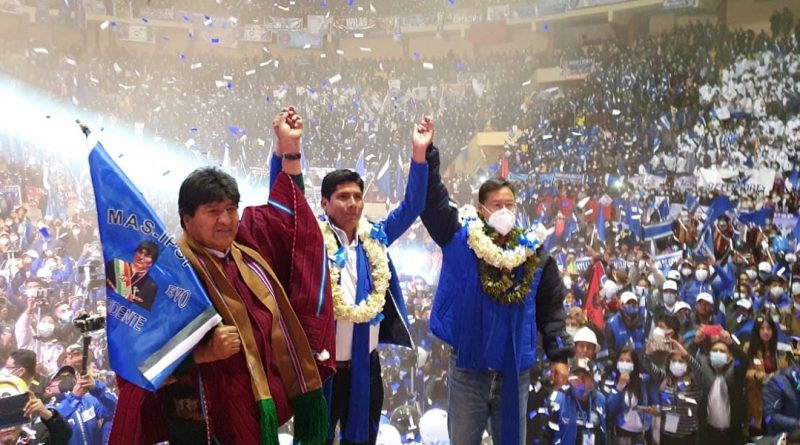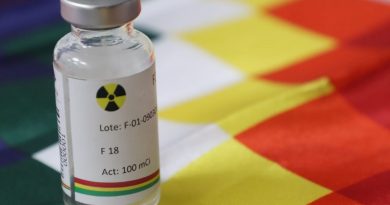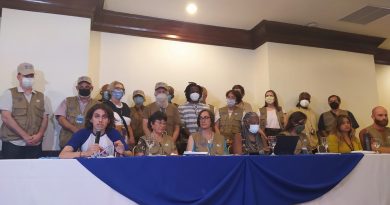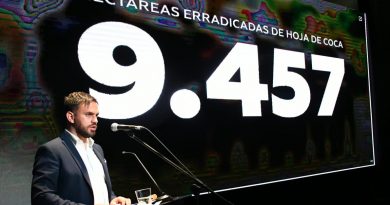Bolivians in Four Departments Vote on Sunday
Campaigns have closed in the Departments of La Paz, Tarija, Pando and Chuquisaca, where Bolivians will head to the polls to vote in the second round of local gubernatorial elections. Bolivia held local elections on March 7th and in four of the country’s nine departments, no candidate managed to receive 50% of the vote, or win with the required 10 point lead over second place, thereby forcing a run-off between the top two candidates.
The Movement Towards Socialism held closing rallies on April 7th in each department, the final of which was in La Paz to rally support for candidate for Governor Franklin Flores, with the presence of party leader Evo Morales and President Luis Arce.
Speaking to Radio Kawsachun Coca, Freddy Mamani, President of the lower legislative house, said, “We are here to support our candidate, our brother Franklin Flores. We need to work together as government with the departmental governments, not just for issues like nationalization. We’ve already completed that phase, what we need now is industrialization. These projects will bring jobs for young people in La Paz, El Alto and the 20 provinces, we need to coordinate this.”
The ruling MAS party aims to win as many local authorities as possible to ensure governability and to build strong relationships between central and local government. During the first round on March 7th, the MAS won 71% of all municipalities. They also won three of the nine departmental governors races, taking Cochabamba, Potosí, and Oruro in outright victories. Santa Cruz was won by far-right leader Fernando Camacho, Beni was won by the opposition ‘Third System Movement’ party. Of the four departments which are up for grabs on Sunday, the MAS came first in La Paz, Tarija, and Pando.
Chuquisaca and Pando were won by the MAS at the last local elections in 2014. La Paz was won by the MAS in 2010, but lost to the right-wing in 2015. Tarija, a normally conservative region which borders Argentina, has never been held by the MAS. Nevertheless, the ruling party came in first place there for the first time, by a tiny margin on March 7th.
In La Paz, MAS candidate Franklin Flores, an Indigenous Aymara leader who was a lawmaker for the last four years, will be running against Santos Quispe of ‘Jallalla La Paz’ the son of the late Felipe Quispe ‘El Mallku.’ Though El Mallku is recognized as a historic social movement leader, many have argued that such leadership cannot be simply inherited, much less by a figure such as Santos who has never been part of any popular movement.
Chuquisaca holds Bolivia’s judicial capital Sucre. The two candidates there are Damian Condori, a former member of the MAS, who resigned after he wasn’t selected as their candidate at the 2015 elections, a job he had coveted for many years. Condori’s party, Chuquisaca Somos Todos, endorsed the failed candidacy of Jeanine Anez before she withdrew from the 2020 presidential elections. He’ll face MAS candidate Juan Carlos Leon, a campesino farmer from the town of Padilla, famous in Bolivia for producing the best quality chili peppers.
In Tarija, the MAS candidate Alvaro Ruiz, a local mayor in the wine-producing town of Uriondo, is challenging Oscar Montes of the right-wing ‘Unidos’ party. Montes is a long-time local politician whose closest political friend, Víctor Hugo Zamora, was Minister of Hydrocarbons in the government of Jeanine Anez. Montes has been criticized for racist comments he made when declaring that MAS supporters in Tarija are not real Tarijeños, and instead hail from more Indigenous areas of the country. In a recent exchange with Ruiz, Monte said, “the people who support you are brought in from Potosí, El Alto, and Chapare, just look at their faces, there are no Tarijeños on that side.” Tarija has a larger mestizo and white population in comparison to the areas listed by Montes.



